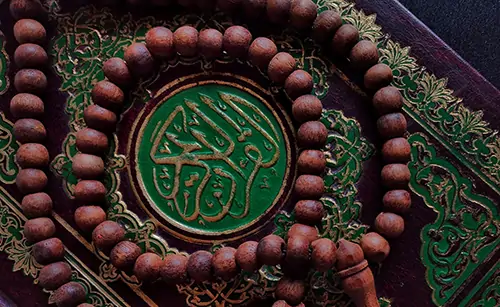Zakat in Islam: Definition, Meaning, Calculation & Benefits – A Complete Guide

The concept of Zakat in Islam is essential to understand because Islam promotes helping people in need. Islam is a beautiful religion that ensures the goodness of every single person. Moreover, this beautiful religion instructs its followers to help people without concern about their caste, color, or wealth level. For this purpose, it announced some obligatory things, like Namaz and Hajj. Zakat or the charity also falls on the list of these obligations and stands at number three, and this blog is regarding Zakat.
What is Zakat ?
Zakat in Islam is a mandatory charitable contribution, one of the five pillars of Islam, designed to purify wealth and aid those in need. Often referred to as Zakah and Zakat, it's a vital concept for Muslims to understand. This guide will clarify the zakat definition, and detail how it promotes social justice.
This blog thoroughly explains what is Zakat?, including its definition and several advantages. Moreover, we will tell you how it differs from Sadaqah, the various categories of eligible receivers, and a detailed tutorial on calculating this obligatory charitable donation. Learn how Zakat, an essential component of Islamic economics, promotes social justice and community cohesion and purifies wealth. Let's start this discussion with the definition of Zakat or concept of Zakat in islam.
Zakat Definition - What is Zakat in Islam?

Zakat is a compulsory charity system part of the Five Pillars of Islam. It intends to help the less fortunate and purify the wealth of the wealthy. It represents a particular portion of a Muslim's wealth over a lunar year, often 2.5 percent. This monetary donation expresses one's dedication to the Muslim community's social justice and unity.
The concept of Zakat must be clear to you. We have already mentioned Islam demands the goodness of humanity. So, we add here that our statement is not an arrow in the air but a reality. Let us prove our statement by telling you the benefits of Zakat.
Benefits of Zakat - Why is Zakat Important in Islam?

Beyond the seemingly simple act of charity donation, Zakat has many advantages. Muslims are encouraged to actively participate in poverty alleviation and community development through Zakat. Additionally, it cultivates a feeling of social responsibility.
Zakat encourages economic equality by dispersing money, making sure that the wealth created in a society is not concentrated in the hands of a small number of people. In addition, Zakat fosters empathy and compassion for people in need by removing the gift from the materialistic side of riches, which purifies the giver's soul.
Some people confuse themselves between Sadaqah and Zakat and consider them the same. These acts of virtue differ from each other. Move ahead to know the difference between Sadaqah and Zakat.
Calculating Nisab for Zakat
Nisab is the minimum amount of wealth a Muslim must own before they are required to pay Zakat. It is based on the value of gold or silver and is calculated as follows:
How to Calculate Zakat?
To calculate Zakat, one must determine the qualifying wealth and then apply the relevant percentage. After deducting any existing obligations, the wealth that is due to Zakat consists of savings, investments, gold, silver, and commercial assets.
Furthermore, Zakat is usually calculated at 2.5% of total wealth. Moreover, it is calculated during Ramadan by many Muslims, which heightens the spiritual value of their charitable offering.
Determine Your Total Wealth: Include cash, gold, silver, business assets, rental income, savings, and investments.
Deduct Liabilities: Subtract any debts or immediate expenses.
Check if Your Wealth Exceeds Nisab:
- If your wealth is above the nisab threshold for gold or silver, you must pay Zakat.
Calculate 2.5% of Your Wealth:
- Example: If your total Zakatable wealth is $10,000, you would pay $250 as Zakat (10,000 × 2.5%).
The Difference between Sadaqah and Zakat

Though charitable contributions are part of both Sadaqah and Zakat, there are differences in the recipients, amount, and responsibility. A 2.5% annual donation from one's wealth is required as part of the mandatory zakat regulations.
However, Sadaqah is optional and possible to offer in any quantity and at any time. Furthermore, Islamic doctrine states that Zakat only applies to particular groups of individuals, whereas Sadaqah is given to whoever is in need.
No query is pending regarding the difference between these prestigious deeds. If you still have one, you can Chat with us. It is time to move ahead and know the people who can accept the Zakat because not everyone is righteous about it.

The Categories of People Who Can Accept Zakat
Islamic teachings specify eight categories of individuals who are eligible to receive Zakat:
- The Poor (Fuqara): Those who cannot meet their basic needs.
- The Needy (Masakin): Individuals experiencing financial hardship.
- Zakat Collectors (Amil): Those appointed to collect and distribute Zakat.
- Those Whose Hearts are to be Reconciled (Mu'allafat al-Qulub): New converts to Islam and others in need of support.
- The Freeing of Slaves (Fir-Riqab): Contributions to help free people from slavery.
- Debtors (Gharimin): Individuals burdened by debt.
- In the Path of Allah (Fi Sabilillah): Those engaged in jihad, community welfare, or other righteous causes.
- Wayfarers (Ibnu Sabil): Travelers stranded or in need during their journey.
These categories ensure that Zakat is for those who genuinely require assistance, contributing to the community's overall well-being.
Conclusion
The concept of Zakat in Islam must be clear to you now. It is a powerful testament to the values of compassion, justice, and community embedded in Islam. Moreover, by purifying wealth and supporting those in need, Zakat is a practical expression of faith and social responsibility.
The benefits of Zakat and the distinctions from voluntary charity like Sadaqah enable Muslims to fulfill this obligation with sincerity and impact. As Muslims strive to follow the teachings of Islam, Zakat remains a cornerstone, fostering economic equity and social welfare within the global Muslim community.

FAQ'S:
When did Zakat become a mandatory practice in Islam?
The obligation of Zakat dates back to the early history of Islam, with its roots intertwined with the revelation of the Quran and the establishment of the Muslim community.
What are the three conditions for paying Zakat?
First of all, a person who is paying Zakat should be Muslim. Second, he should care for Nisab and go for it if the wealth level reaches the line. Moreover, he should pay Zakat according to the lunar year.
Who is not eligible for Zakat money?
People who do not pay the Zakat fall into four types. They are the destitute, the needy, the indebted, and the enslaved. There is no Zakat obligation on items you deem necessary, even though gold and silver are eligible for Zakat.
Can a person make monthly Zakat payments?
One may be eligible to pay the Zakat in installments as long as one cannot pay in full at once. According to academics, Zakat can be paid monthly as long as it is done before the deadline.














